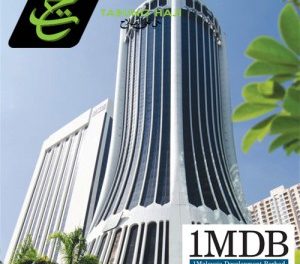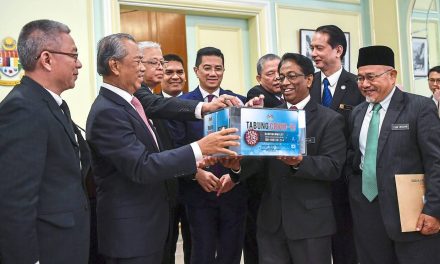Four agencies to form single entity for affordable housing
Instead of six, the single entity to oversee the provision of affordable housing will comprise four agencies, said National Housing Department director-general Jayaselan Navaratnam. The four agencies are 1Malaysia People’s Housing Programme (PR1MA), Syarikat Perumahan Negara Bhd, Housing Project for the Hardcore Poor and the Malaysia Housing Project for Civil Servants. UDA Holdings Bhd and Federal Territories Affordable Housing Project (Rumawip) would be excluded from the entity. “Even though we want to have a single entity, we’re finding it difficult to implement because everybody wants to have a piece of the cake. Out of the 19 agencies in the housing industry, we’re only holding four,” said Jayaselan. The National Housing Policy (2018-2025), approved by the Cabinet two weeks ago, is aimed to be launched in December. The policy has five foci, 16 strategies and 57 action plans. (The Edge Markets)
Naim to build 20,000 units of affordable homes in Sarawak
Property developer Naim Holdings Bhd targets to construct some 20,000 units of affordable houses in Sarawak over the next 10 years. Managing director Datuk Hasmi Hasan said affordable terraced houses would be priced around RM300,000 each. At Naim’s flagship development in Permyjaya new township in Miri, the group has launched 416 units of mainly terraced and semi-detached houses in its Southlake zone. The group plans to roll out another 150 units of affordable and medium-priced houses with GDV of RM70mil in Southlake. The group has two other flagship integrated developments – Kuching Paragon and Bintulu Paragon – which feature upmarket high-rise condominium projects. (The Star Online)
Floating concept to help bumiputra property buyers
Johor will use the floating concept for bumiputra industrial properties, said state Housing and Rural Development Committee chairman Dzulkefly Ahmad. Presently bumiputra title industrial properties were pre-determined before being released for sales. Under the floating concept, buyers can choose from the available lots and will get their bumiputra title after making their choice. Dzulkefly said the concept offered bumiputra and non-bumiputra buyers the flexibility of choosing their industrial properties to suit their manufacturing activities.The 40% quota for the bumiputra industrial lots would be maintained. The main issue is that buyers are unable to buy two units side by side as the lots come under the non-bumiputra status, or vice versa, making it difficult to expand their operations. (The Star Online)
Mammoth Empire sells multiple assets
Mammoth Empire Holding Sdn Bhd (MEH), developer of Empire City Damansara, an RM5 billion project launched 2011, is making moves that will raise RM800 million, enable the paring down of debts, complete long-delayed projects and take the group to sound financial-footing by the middle of 2019. At the top of the list of measures is the sale of a 65-acre tract of land that was meant for Empire City Damansara 2 (ECD2) in Petaling Jaya, Selangor. ECD2 was reportedly divided and sold to two parties. MEH is also negotiating to sell to hotels in ECD1, the Autograph Boutique Hotel and the Marriot Hotel. It is also in talks to sell Wolo Bukit Bintang, and interested in letting go of the McGuffin Hotel if it receives an attractive offer. (The Edge)
 Malaysia’s internet 26th fastest in the world
Malaysia’s internet 26th fastest in the world
An Internet speed survey showed that Malaysia rose 10 spots last month to become the 26th fastest country in the world with an average fixed speed of 61.97 Mbps, compared to the global average of 50.88 Mbps. The result was acknowledged by The Speedtest Global Index, said the Malaysian Communications and Multimedia Commission (MCMC). “The government has met its promise to reduce the fixed high-speed broadband prices by 25% by the end of 2018,” it stated. It added that prices for entry-level packages had also been reduced by more than 30%. Communications and Multimedia Minister Gobind Singh Deo had made this issue his priority after he took office in May. MCMC would continue to monitor the offerings by telcos to ensure that consumers were given quality service, high speed and reasonable prices in the long term. (The Star Online)





